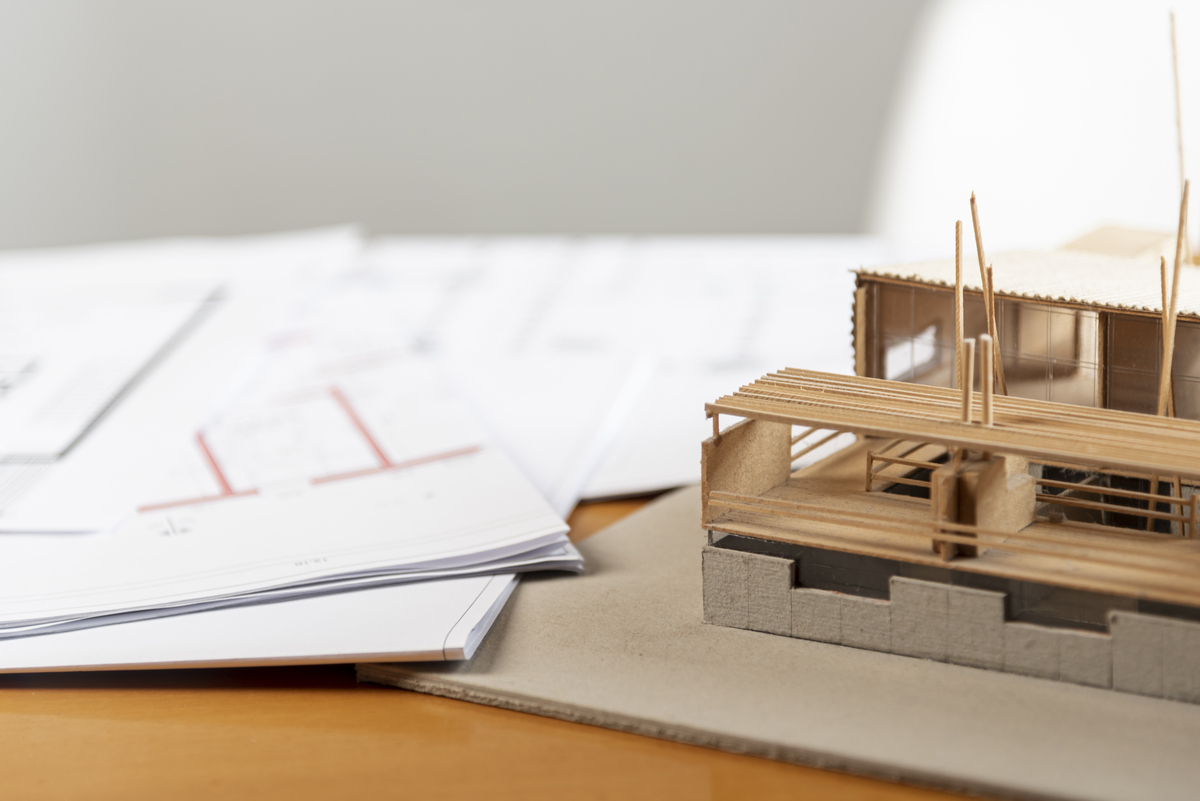Exclusive Neuroject Article: Construction bids serve as the entry point for projects, frequently serving as the first point of contact between clients, contractors, and projects. They encompass the commitment, vision, and technical skills of potential builders in addition to the financial factors.
The physical infrastructure that supports contemporary society is created by the construction sector, which serves as a pillar of global economic progress. The construction bids process emerges as a keystone within this enormous and dynamic sector, managing the distribution of resources, talents, and knowledge to actualize the built environment.
The construction industry is undergoing a revolution in 2024, which is characterized by both persistent difficulties and promising chances. Updated bidding tactics have become crucial in this situation, pointing industry participants in the direction of competitiveness, sustainability, and success.
A thorough understanding of the procedure and the approach that you should adopt as a contractor are necessary for bidding success. The art of construction bidding is extremely important in the quick-paced world of construction, where efficiency and accuracy are crucial. The building business is undergoing numerous changes and difficulties as 2024 approaches.
This article intends to go into the core concepts of construction bids while arming you with knowledge of the most recent trends and techniques that can help you stand out in the market today. We will negotiate the difficulties of construction bids, providing helpful advice and futuristic hints about what the future may hold for this crucial step in the construction process, drawing on a wealth of industry knowledge.
Table of Contents
Introduction to Construction Bids
The process of bidding in the construction sector is a multifaceted and pivotal element of construction project management. Precise and competitive construction bids are crucial for contract acquisition, budget control, and the ultimate achievement of successful construction projects. The year 2024 ushers in a new era for construction bidding, marked by evolving industry trends, technological progress, and economic fluctuations. In order to navigate this ever-changing landscape effectively, industry professionals require an encompassing guide that not only encapsulates traditional bidding practices but also incorporates the most recent developments in the field.
Construction bidding is a vital procedure within the construction industry where contractors and construction firms present their proposals or bids to vie for the chance to manage a construction project. Typically instigated by the project owner, who could be a private entity or a government body, the bidding process involves the release of project details, plans, and related documents.
Successful construction bids result in projects that fulfill deadlines, stay within budgets, and meet customer expectations. On the other hand, unsuccessful construction bids can result in considerable financial losses and lost chances for building companies. Therefore, for all parties involved, having a thorough understanding of the complexities of the construction bids process is not only useful but also essential.
Contractors assess these materials and submit their bids, outlining their proposed costs, timelines, materials, and methodologies for the project. The owner evaluates these bids and selects the contractor that offers the most favorable terms, often considering factors such as cost, qualifications, experience, and scheduling.
This article seeks to serve as an indispensable resource for contractors, project managers, architects, engineers, and all stakeholders involved in the construction bidding process. Drawing upon the most up-to-date research and industry insights, this guide intends to provide readers with a profound comprehension of the intricate world of construction bids, empowering them to make informed decisions that drive project accomplishments.
Within this comprehensive guide, we will delve into the fundamental principles of construction bidding, including cost estimation, bid preparation, and risk evaluation. Additionally, we will investigate how emerging technologies like Building Information Modeling (BIM) and Artificial Intelligence (AI) are transforming the creation and assessment of bids. Furthermore, the article will examine the influence of sustainability trends and the growing significance of eco-friendly construction practices on the bidding process.
The events of 2024 take place against the backdrop of a construction industry going through significant changes. Among the causes altering the industry are rapid urbanization, demands for sustainable construction, technological improvements, and shifts in material costs. It’s possible that standard construction bids strategies won’t work in this dynamic environment anymore. Construction companies must adapt and implement updated bidding tactics that include contemporary tools, sustainability principles, and sophisticated awareness of market trends in order to be competitive and resilient. Construction bids are living road maps to project success, reflecting the evolution of the industry, it becomes obvious as we traverse the complexities of this transformational period.
Suggested articles for reading: AI in Construction | BIM in Construction

Understanding the Basics of Construction Bids
The foundation of the construction sector is construction bids. Whether it involves building a private home, a business skyscraper, or a sizable infrastructure project, they serve as the first step in the process of awarding contracts for construction projects. We will go into the fundamentals of construction bids in this section, examining their types, definitions, and key terms.
What Is a Construction Bid?
Construction bids are fundamentally formal proposals delivered by a building firm or contractor in response to an RFP issued by a client, typically the project owner or developer. The scope of work, cost estimates, project timetable, and other important details are all included in this proposal, which explains the contractor’s offer to take on a particular construction project.
Construction bids are essential for the following reasons:
- Competitive Pricing: Project owners can receive competitive pricing from a range of contractors by submitting bids, ensuring they get the best deal possible.
- Transparency: Bids promote trust and accountability in the construction process by offering a transparent record of the contractor’s commitment to the project.
- Legal Protection: If the contractor’s bid is accepted, the construction bids documents frequently act as a legally enforceable contract, safeguarding the interests of both parties.
- Decision-Making: Project owners can choose the most capable and affordable contractor for their project with the help of bids.
Types of Construction Bids
There are different types of construction bids, each one adapted to the requirements and circumstances of a particular project. The main categories of construction bids consist of:
- Open Bids: Public notice of open bids enables any suitably qualified contractor to submit a bid. This kind is typical for government projects and is renowned for its openness and spirit of competition.
- Closed Bids: Closed bids, also referred to as sealed bids, are delivered in confidence to the project owner. They are frequently employed for tasks where maintaining anonymity is crucial and where only particular contractors are invited to participate.
- Negotiated Bids: In contrast to competitive construction bids, the project owner chooses a contractor through negotiated bids based on qualifications and negotiation. This strategy is frequently applied to difficult or design-build projects.
- Design-Build Bids: In design-build bids, a single contractor is in charge of both the project’s design and construction stages. Project management and communication are streamlined by this method.
It is crucial for both contractors and project owners to understand the type of bid being used because it affects the entire project dynamics, cost control, and contractual duties.
Key Terminology
It’s crucial to understand the basic jargon used in the industry to navigate the world of construction bids efficiently. You’ll hear the following essential terms:
- Bid Documents: These are the thorough set of documents that describe the project’s needs, expectations, and scope. Project plans, specifications, and contract terms are frequently included in them. For the purpose of creating an accurate bid, these documents must be read in their entirety.
- Bid Bond: A bid bond is a type of financial assurance that is frequently needed for public projects to ensure the contractor’s dedication to the construction bids. The bond is lost if the contractor backs out or does not carry out the contract.
- Bid Evaluation: This is the procedure by which the client or project owner evaluates and contrasts quotes from several contractors. Cost, qualifications, expertise, and the anticipated project timetable are frequently used as evaluation factors.
- Pre-Bid Meeting: A meeting that is held before the deadline for construction bids submissions so that contractors can ask questions, get answers, and learn more about the project. Contractors who attend these seminars can produce more accurate quotes.
- Addenda: In order to answer queries or give more information, addenda are updates or amendments to the bid documents that the project owner issues throughout the bidding process. These adjustments must be reflected in the construction bids submitted by contractors.

Preparing for a Construction Bids
In the construction industry, preparing for construction bids is a crucial stage that needs rigorous planning, in-depth research, and strategic decision-making. In order to land lucrative contracts and maintain the longevity of their business, contractors, and construction companies must succeed in this phase. We will examine the crucial elements of putting up a building bid in this guide, including market analysis, bid documentation, cost estimation, and legal and regulatory issues.
Market Research
The cornerstone of a good bid preparation process is market research. In spotting possible contracts and comprehending market conditions, contractors must be proactive. Contractors can concentrate their efforts on jobs that match their skills and goals by conducting thorough market research.
- Identifying Opportunities: To find prospective construction jobs, contractors should use networking, government websites, and industry-specific databases. Project leads are available via tools like BidClerk and Dodge Data & Analytics.
- Understanding the Client: The owner or client must be well-researched. To properly personalize their bid proposal, contractors should research the client’s history, prior projects, and preferences.
- Analyzing Competitors: Identifying competitors’ advantages and disadvantages aids in creating a competitive strategy. Examine their prior construction bids and project accomplishments.
- Market Trends: Keep abreast of market changes, such as technology developments, demands for sustainability, and evolving legal requirements.
Bid Documents
The foundation of a successful building bid is the bid documents. Contractors must carefully analyze these documents in order to comprehend the project’s requirements and limitations because they contain specific information about the project.
- Components of Bid Documents: Project plans, requirements, contract terms, and any addenda or clarifications are frequently included in bid documents. Each element is essential to have a complete grasp of the project.
- Review Process: To achieve a thorough understanding of the project scope and needs, contractors should implement a systematic review process with the participation of pertinent team members.
- Document Discrepancies: Any inconsistencies or ambiguities in the bid materials need to be immediately pointed up and clarified with the client. Failure to do so could result in pricey misunderstandings down the road.
Estimating Costs
A crucial component of preparation for construction bids is accurate cost estimation. To make sure that their bid is both competitive and lucrative, contractors must carefully assess project expenses.
- Detailed Takeoff: Quantify the supplies, labor, tools, and other resources needed for the project to create a thorough takeoff. This approach can be aided by specialized tools like Bluebeam Revu or PlanSwift.
- Labor and Overhead Costs: Think about labor rates, including salaries, perks, and administrative expenses. Make sure your labor estimates are reasonable and affordable.
- Material Costs: Keep up with changes in material costs and suppliers. Utilize your connections with suppliers to negotiate a fair price.
- Contingency Planning: Include backup plans in case the project’s scope changes or unexpected circumstances occur. A typical contingency could be anything between 5% and 10% of the project’s overall cost.
Legal and Regulatory Considerations
For the purpose of preparing construction bids, navigating the legal and regulatory environment is crucial. Project delays and legal issues may occur if local rules and regulations are not followed.
- Licensing and Permits: Make sure that both your company and the project team have the proper licenses and permits. Check the client’s requirements for permits as well.
- Insurance: Examine your insurance policy to make sure it meets the requirements of the project. To reduce risks, adjust coverage as appropriate.
- Local Regulations: Learn about the zoning rules, environmental standards, and building ordinances in your area. Failure to comply may result in fines or the suspension of projects.
- Contractual Terms: Examine the bid documents’ contract terms and conditions in detail. If you need help understanding and negotiating conditions that could be risky, see a lawyer.
It takes a combination of market knowledge, rigorous document analysis, exact cost estimation, and strict adherence to legal and regulatory regulations to prepare for a building bid. Contractors who are successful in these areas have a better chance of landing lucrative construction jobs. Contractors can improve their chances of winning construction bids and developing enduring connections with clients by devoting time and effort to thorough bid preparation.

Creating a Winning Bid
In the construction sector, the bid procedure is both fiercely competitive and crucial. The success or failure of a building company can be determined by winning bids.
1. Understanding the Project Requirements
A solid understanding of the project specifications is the first step in creating a competitive offer. This entails a thorough examination of the bid materials, which cover the plans, requirements, and contract terms. Contractors must closely monitor the project’s scope, schedule, and any unique requirements.
2. Developing a Comprehensive Bid Strategy
A winning bid is built on an effective bid strategy. It entails a thorough evaluation of the project’s risks, expenses, and prospective profit margins. Contractors should take into account prices for subcontractors, equipment, labor, and supplies. They must also recognize potential dangers and create mitigation strategies.
3. Accurate Cost Estimation
It’s essential to estimate costs accurately. To avoid overbidding or underbidding, contractors must assess their expenses precisely. In order to do this, historical data must be analyzed, cost estimation tools must be used, and expert estimators must be consulted. It’s crucial to take both direct and indirect costs into consideration.
4. Presentation and Organization
The bid proposal needs to be planned and presented well. Contractors must express their strategy, credentials, and pricing in unambiguous terms. Even if the material is compelling, a disjointed or badly prepared offer may scare away potential customers. Clarity and attention to detail are essential.
5. Highlighting Value and Differentiation
It’s critical to emphasize the distinct value your business delivers to the project in order to stand out in a crowded field of bidders. This could include specialized knowledge, creative solutions, or a history of successfully performing projects comparable to this. Differentiation might persuade the client to choose you.
6. Collaboration and Teamwork
For a team to produce a successful bid, cooperation is essential. All elements of the construction bids, from technical specifications to pricing, must be in perfect alignment for effective communication and cooperation to take place. A strong bid team will be better able to spot and resolve possible problems.
7. Technology and Bid Software
Technology and bid software can make the bidding process more efficient. Software for construction management can help with project scheduling, document management, and cost estimation. Utilizing modern technology can increase productivity and accuracy.
8. Legal and Regulatory Compliance
It is imperative that your offer conforms with all applicable laws and regulations. This covers obtaining licenses and permissions and adhering to regional construction codes. These standards must be met in order to avoid disqualification and legal problems.
9. Submission and Follow-Up
It is crucial that you submit your construction bids on time. Deadlines that are missed may result in disqualification. After submission, be ready to answer any questions or requests for clarification right away. Effective follow-up indicates dedication and professionalism.
Winning construction bids demands a combination of knowledge, planning, and professionalism. Contractors who are proficient in these areas have a greater chance of landing lucrative projects and developing fruitful, long-lasting customer relationships.

Submitting and Managing Bids
In the construction industry, submitting and managing construction bids is a crucial stage that marks the successful conclusion of a long process of project acquisition. The numerous facets of this crucial procedure, from the original bid submission to post-submission management, will be covered in this section.
1. Submission Process
The procedure for submitting construction bids is comparable to providing the lifeline for a project. Contractors are required to supply a thorough set of documentation and abide by rigorous timeframes. Priority should be given to comprehending the precise submission requirements listed in the bid documents. The submission deadline, delivery method, and any special instructions are all included here.
Many construction bids are now filed electronically through specialized platforms in the age of digital technology. The efficiency of electronic submissions is increased, the chance of late submissions is decreased, and a transparent audit trail of the bidding process is provided. However, it’s crucial to verify that electronic submissions adhere to the client’s requirements and that all necessary documents are properly uploaded.
2. Bid Evaluation
The owner or client starts the process of evaluating construction bids after they are submitted. Each submission must go through a thorough evaluation procedure before the project’s contractor can be chosen. Price, qualifications, experience, and recommendations are just a few of the variables that evaluators frequently take into account.
To keep the bidding process’ integrity, an appraisal must be transparent and objective. Any bias or favoritism might result in arguments and complicated legal situations. Reference checks are frequently performed to confirm the contractor’s past performance and make sure they are capable of effectively completing the job.
3. Post-Bid Follow-Up
It’s critical for contractors to stay involved in the process after submitting a bid. This includes giving the client fast attention to any questions or requests for clarification. During this phase, communication must be clear and simple because it has a big impact on how the client views the contractor’s professionalism and dedication.
Post-submission bid negotiations are also possible, particularly if the client wants to alter any project details or bargain over the terms and conditions. Contractors must be ready to represent their interests in these conversations in a polite manner.
4. Legal and Ethical Considerations
Respect for legal and ethical requirements is crucial throughout the bid submission and management process. Contractors are required to make sure that their construction bids are truthful and devoid of any false information. Falsifying information or making an attempt to rig the bidding process can have serious legal repercussions, such as being disqualified from the bid and facing lawsuits.
Additionally, contractors need to be aware of any regional, national, or local laws that may apply to the solicitation of construction bids. These rules might call for licensing, bonding, or adherence to initiatives for women- or minority-owned businesses.
5. References and Best Practices
Following best practices is frequently necessary for a bid submission and management process to be successful. These consist of:
- Thorough Documentation: Keep comprehensive records of all conversations, submissions, and negotiations relating to the proposal.
- Strategic Pricing: Create a price plan that is competitive but practical, based on precise cost projections.
- Professional Presentation: Make sure all bid documents are well organized, devoid of mistakes, and presented with professionalism.
- Client-Centric Approach: Construction Bid should be specifically tailored to the priorities and demands of the client or project owner.
- Continuous Improvement: Continually evaluate and improve your bidding procedures based on prior performance and customer feedback.
In the construction sector, filing and managing construction bids is a complex process that calls for careful attention to detail, adherence to moral and ethical standards, and effective communication. Contractors can improve their chances of landing profitable projects and developing trusting customer relationships by mastering this phase.

Tips for Success and Future Trends
For success in 2024 and beyond, being ahead of the curve in the dynamic world of construction bidding is essential. Here are some pointers to assist you in succeeding in construction bids preparation and perceptions of recent trends:
- Digital Transformation: Accept digital platforms and tools for communication, project monitoring, and bid administration. Construction bids software and cloud-based solutions help streamline your operations, improving accuracy and efficiency.
- Data Analytics: To make wise decisions, use data analytics. Accurate cost estimation, risk assessment, and competitive pricing can all be aided by analyzing historical bid data.
- Sustainability: Include sustainability in your proposals. Environmentally friendly business methods are becoming more popular with clients. Draw attention to your dedication to environmentally friendly building practices and supplies.
- Building Information Modeling (BIM): Construction is still being revolutionized by BIM. BIM integration can enhance project coordination and visualization while lowering errors and rework.
- Collaboration: Encourage cooperation among your bid team and subcontractors. Workplace collaboration improves the quality and competitiveness of construction bids.
- Risk Management: Create a solid risk management plan. To show that you’re prepared to tackle unforeseen obstacles, assess and reduce prospective risks.
- Client Relationships: Develop enduring connections with your clients. You can gain an advantage in a bidding war by being aware of the wants and preferences of your clients.
- Continuous Learning: Keep abreast of technological advancements, market trends, and rules. To increase your expertise, go to conferences, webinars, and seminars.
- Legal Compliance: Ensure that all legal and regulatory standards are strictly followed. Failure to comply may result in disqualification and legal repercussions.
- Ethical Practices: Keep your bidding procedure to the highest ethical standards possible. Integrity and transparency foster trust among business partners and clients.
Suggested articles for reading: Digital Transformation in Construction | Construction Risks |
Future Trends:
- Blockchain Technology: Blockchain is becoming more popular in the construction industry because of its promise to improve the security and transparency of transactions.
- AI and Machine Learning: These tools can aid in resource allocation, project scheduling, and predictive analytics.
- Prefabrication and Modular Construction: Due to these methods’ effectiveness and sustainability, adoption is anticipated to increase.
- Remote Project Management: Construction companies may rely more on remote project management technologies and procedures as remote work becomes more widespread.
- Drones and LiDAR: For site surveys, progress tracking, and quality control, these technologies are becoming increasingly important.
Success in construction bidding in 2024 requires a synthesis of time-tested best practices and a futuristic mindset. You may position yourself for success in the always-changing construction sector by putting these suggestions into practice and keeping up with the latest trends.
Suggested articles for reading: Blockchain in Construction | Machine Learning in Construction | Drones in Construction
Conclusion
Construction professionals can get a competitive edge by embracing digital transformation and utilizing data analytics. Customers and contractors alike now place a high value on sustainability and ethical behavior, highlighting the significance of using ethical and open methods.
Collaboration between bid teams and subcontractors can improve the quality of construction bids and raise the possibility that projects will be awarded, especially when combined with effective risk management. Additionally, maintaining solid customer relationships and abiding by legal and regulatory regulations are essential components of a winning bid strategy.
The construction industry is expected to undergo a significant transition in the future. The construction bids process and project management are about to undergo a change thanks to technologies like blockchain, AI, and machine learning. The ways that construction projects are carried out will change as a result of prefabrication, remote work, and enhanced surveying techniques.
Continuous learning and adaptation are crucial in this dynamic environment. The keys to remaining competitive and successful in the construction bids arena of 2024 and beyond will be staying updated about industry trends and embracing novel tools.
Suggested article for reading:
important construction technology in 2024
The future of construction industry; 2024 and beyond
Resources:
Construction Industry Institute | Design-Build Institute of America | U.S. Small Business Administration | Autodesk | National Association of Home Builders | Construction Industry Ethics and Compliance Initiative | Procore
Journal Articles:
- Ahmed, S., & Kang, S. (2021). A review of off-site construction industry and a proposal for a digital platform integrating prefab manufacturing with on-site construction. Automation in Construction, 127, 104632.
- Baynard, R. E. (2013). Construction Business Development: Meeting New Challenges, Seeking Opportunities.
- Brown, A., & White, L. (2022). Modernizing Bidding Strategies in Construction. Journal of Construction Management, 39(2), 65-80.
- Cobb, C. G. (2015). The Project Manager’s Guide to Mastering Agile: Principles and Practices for an Adaptive Approach.
- Ding, A. (2019). Construction Estimating: A Step-by-Step Guide to a Successful Estimate.
- Gong, J., & Li, H. (2020). Client’s evaluation of design-bid-build project success: A fuzzy synthetic evaluation approach. International Journal of Project Management, 38(5), 294-305.
- Hammoudeh, M., & Behzadan, A. (2017). Sustainability in construction bidding: An integrated approach to assessing the environmental impact. Journal of Cleaner Production, 149, 961-971.
- Holm, L. (2009). Construction Cost Estimating: Process and Practices.
- Jackson, B. J. (2010). Construction Management JumpStart: The Best First Step Toward a Career in Construction Management.
- Kliem, R. L. (2013). Effective Communication for Project Managers: Delivering the Right Message at the Right Time.
- Lim, C. S., & Mohamed, S. (1999). An evaluation of risk management techniques for construction projects. International Journal of Project Management, 17(6), 329-335.
- Lu, W., & Alashwal, A. M. (2021). The role of remote work in the construction industry: A post-COVID-19 review. Automation in Construction, 122, 103465.
- Sears, S. K., Sears, G. A., Clough, R. H., & Sears, S. (2015). Construction Project Management: A Practical Guide to Field Construction Management.
- Smith, J. (2022). Construction Industry Trends 2023: A Comprehensive Analysis. Construction World, 45(3), 21-32.
- Teizer, J., & Kang, H. W. (2015). Advancing construction and mining safety with new unmanned aerial vehicle (UAV) and laser scanning technologies. Safety Science, 72, 283-291.
- Thomas, S. (2005). Construction Contracting: A Practical Guide to Company Management.
- Viskovic, A., Aouad, G., & Child, T. (2010). Application of artificial intelligence in construction. Engineering, Construction and Architectural Management, 17(2), 113-132.
- Wang, X., & Seo, J. W. T. (2021). Blockchain technology adoption in construction project management: Opportunities, challenges, and risks. Journal of Construction Engineering and Management, 147(4), 04021021.
For all the pictures: Freepik, Unsplash




